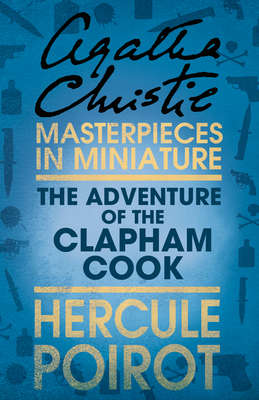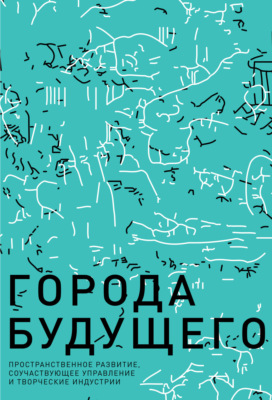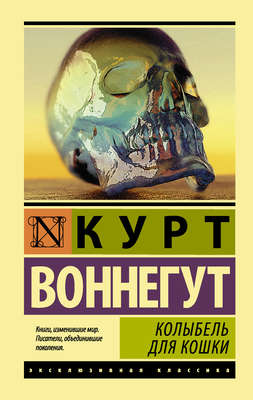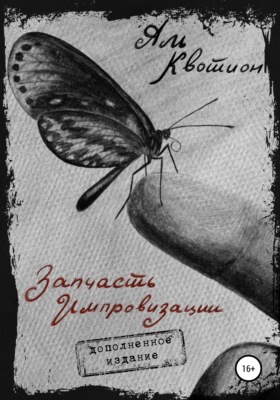Czytaj książkę: «The Last Ride»
THOMAS EIDSON
The Last Ride

COPYRIGHT
HarperCollinsPublishers 1 London Bridge Street London SE1 9GF
First published by Penguin UK Ltd in 1995
This edition 2004
Copyright © Thomas E. Eidson 1995
Thomas E. Eidson asserts the moral right to be identified as the author of this work
This novel is entirely a work of fiction. The names, characters and incidents portrayed in it are the work of the author’s imagination. Any resemblance to actual persons, living or dead, events or localities is entirely coincidental.
A catalogue record for this book is available from the British Library
All rights reserved under International and Pan-American Copyright Conventions. By payment of the required fees, you have been granted the nonexclusive, nontransferable right to access and read the text of this e-book on-screen. No part of this text may be reproduced, transmitted, downloaded, decompiled, reverse engineered, or stored in or introduced into any information storage and retrieval system, in any form or by any means, whether electronic or mechanical, now known or hereinafter invented, without the express written permission of HarperCollins e-books.
Source ISBN: 9780007181353
Ebook Edition © SEPTEMBER 2012 ISBN 9780007396832
Version: 2016-03-23
HarperCollinsPublishers has made every reasonable effort to ensure that any picture content and written content in this ebook has been included or removed in accordance with the contractual and technological constraints in operation at the time of publication.
DEDICATION
For my parents Genevieve and Richard
‘None of us will ever forget Erwin Street …’
CONTENTS
Cover
Title Page
Copyright
Dedication
One
Two
Three
Four
Five
Six
Seven
Eight
Nine
Ten
Eleven
Twelve
Keep Reading
About the Author
Also by Thomas Eidson
About the Publisher
ONE
Brake Baldwin spotted the horseman as he rode clear of the tamarisk trees. He pulled his spectacles down, watching over the newspaper to see that the stranger was actually coming in, then shoved them back and went on reading. It was late evening, storm clouds gathering in a lowering sky. A poor-will was calling from the hills behind the barn. The sound was off – he didn’t know why. The thick-trunked cottonwoods near the creek were blackening in the dusk, night closing over the small valley of the New Mexico ranch.
He returned to the newspaper’s headline: PRESIDENT DECLARES WILD WEST DEAD. Amazing. Just like that: it was over. Eighteen eighty-six and gone – a finger snap. Santa Fe was getting ready, the paper said, to celebrate with a parade of modern inventions and a concert in the old Plaza. That should be worth the seeing, he thought.
The bay mare in the pasture whinnied at the stranger’s horse, but got no response, Baldwin glanced back up – the rider was moving slowly in the dying light, the wind running hard ahead of the approaching rain. He kept his eyes on him longer this time, noticing something different, but the stormy twilight was too far gone to be good for seeing any distance.
Not liking the tenseness in his shoulders, Baldwin mumbled his grandmother’s saying: You weren’t born in the woods to be scared by an owl. The man and the horse were coming through the orchard now, the trees singing in the building storm. The animal’s head was down and it looked ready to collapse. Behind him, he heard the barn open. Mannito had seen the rider, as well. The old Mexican was nearing seventy-five, but he had the delicate senses of one grown old dodging Mescaleros and Chiricahuas and their Apache brethren. Fortunately, those days were nothing but mean memories. Maybe the newspaper had it right; maybe the Wild West was dead.
He heard another door, and the sound of shutters closing, and knew Maggie was back caring for the woman and her children. She had been going round the clock with these three for days. She wasn’t a regular doctor, but she had nursed over twenty years and was better at it than most, running a little infirmary of sorts. Mostly her patients were poor Mexicans like the woman and her kids.
The rider emerged slowly from the shadows and Baldwin focused on him, wanting to smile, but the battered Sharps rifle lying across the saddle kept him somber. Patterns had been tattooed into the stock of the old weapon with brass tacks, Indian style. He tucked the newspaper under his arm, dropping his hand slowly, the reflex surprising him since he hadn’t worn a gun in years.
‘Malo,’ Mannito whispered. ‘Bad.’ The little Mexican, hat in hand against the wind, was squinting through the darkening night at the stranger, then he turned and slipped away into the shadows, most likely gone to his shotgun, Baldwin figured.
The rancher stood straighter. The rider had stopped his horse a few yards away, and sat staring at him. ‘Evening,’ Baldwin said.
The man nodded. Baldwin’s eyes moved slowly over him. He was old, maybe in his seventies, and big, close to six-six, deathly lean, but paunching some. Whether white or mixed breed, it was impossible to tell. At one time he must have been built like a range bull – now he was all bones, ridges and valleys. His rough face was burned to umber and looked slapped together with pieces of wet clay that didn’t fit just right; the heavy nose had been broken, maybe more than once, and he appeared tired or drunk, or both. His get-up was odd: frontier, Indian and Mexican. People had stopped dressing like this forty years ago. Baldwin’s eyes went back to the brutal features of the man’s face.
A little black and white terrier, the size of a good bootjack, was perched on the horse’s rump, its fur up against the storm, looking like a circus dog Baldwin had once seen. Without warning, it took a flying leap off the horse, tumbled over the ground and then trotted nervously around the rancher’s legs – just out of kicking distance – growling as though it weighed a hundred pounds instead of ten.
‘He bite?’ Baldwin hollered against the increasing roar of the tempest.
The old man nodded again, appearing to Baldwin for a moment like a demon riding in this dark wind. He was wearing a Pawnee medicine shirt made from an eerie blue-colored buckskin and covered with bright golden stars of silk that had been sewn on, and trimmed at the sleeves with a black fringe. A beauty. Gauntlet gloves covered his massive hands and a long black kerchief was clasped tight against his thin neck with a silver ornament; strangest of all, he was bare-legged, wearing a long Apache breechcloth. His body was painfully gaunt. Baldwin chewed on the inside of his lip for a second, wondering who the hell this old bastard was. He looked as though he belonged in a Wild West show; everything about him seemed old, as if he and his animals had ridden out of some ancient canyon lost to time.
‘I’d rather he didn’t bite me.’
‘Chaco,’ the stranger said firmly, trapping a cough in his throat.
Lightning flashed in the hills behind them, illuminating the old giant’s harsh face for an instant, then thunder rolled slowly across the valley. The little dog had stopped growling when the stranger called his name, and he lifted his leg now where he stood and peed a yellow stream that Baldwin swore was directed at him; then he bolted forward, took one high bound, hit the man’s stirrup, twisted, touched momentarily on his thigh, then – with the man leaning out of the way slightly – hopped nimbly back into place on the rump of the horse. It had happened so fast that Baldwin wasn’t certain how he had done it.
‘Pretty slick.’
The old man didn’t respond.
Someone lit the lantern in the kitchen of the ranch house and the light from the window made the stranger’s holster and cartridge belt sparkle in the night, every inch decorated with rough silver hammered from Mexican coins. He looked seedy and old but hard, his eyes small and dark, and he was carrying enough hardware to dust half the Mexican army. Baldwin wondered if he was just show. The old man was staring at the kitchen window.
‘Join us for supper?’ Baldwin called against the wind.
The little gray, her eyes half-closed, jumped at the sound of his voice in the squall. She was old and bony like the man who rode her – an Indian Chickasaw pony, with lots of Spanish and not a little wild blood in her veins. She was being followed by a young, claybank-colored mule that nibbled playfully at the old man’s stirrup. ‘Alice,’ he said, waving the jenny away. Reluctantly, she obeyed. Neat trick, getting a mule to do anything, Baldwin thought.
‘Baldwin place?’ The old man’s words were slurred, but made sense, the voice deep and shaded Indian.
The rancher just watched him, pulling his hat down hard on his head.
‘Man on the road told me,’ the old giant offered, stifling another hard cough that made him wince behind his eyes, and taking a pull on a whiskey bottle.
‘Your name?’ Baldwin called.
‘Samuel Jones.’
Baldwin studied him a moment longer, then said, ‘Brake Baldwin. Those animals could use a feed.’
Baldwin turned and started walking towards the barn, knowing Mannito had him covered from inside, and figuring the stranger probably knew it too. He didn’t look like any pilgrim. Not remotely. Baldwin stopped and glanced back at him. He was still staring at the kitchen window, as if hypnotized by the light, his hair and clothes whipping wildly in the gusts.
‘Fresh horse tracks in those hills,’ the old man called, without taking his eyes off the house.
‘Probably drifters,’ Baldwin yelled over the growing gale.
‘Eight. None shod.’ The stranger paused, continuing to stare at the window. ‘One outrider. Not drifters.’
Baldwin felt the tenseness in his shoulders again and shrugged it off, figuring the old man was playing for attention. They had been bothered by Mexican bandits a few years back, and Indians before that. But all had been calm and friendly as of late. He turned and started once more for the barn. The stranger glanced a final time at the window, then clucked the gray forward and followed. It was quieter inside, and somewhere in the dark interior Baldwin could hear Mannito trying to stifle a laugh.
‘Is that a Mexican?’ the old man asked.
Baldwin watched him for a moment, then said, ‘The answer is he works for me.’
‘Then tell him not to laugh at me.’ The old man was coughing hard, as though he were trying to expel something from his lungs, then he began breathing in little gulps like a turkey that had been run in the sun.
‘I said he works for me. There’ll be no trouble. If that’s tough to understand, you can move on.’
Mannito stepped from the shadows, carrying his shotgun. Chaco darted for his boots. ‘Alto!’ the Mexican boomed. ‘Halt!’ The tiny terrier sat, raising his front paws as if he was pleading for his life.
The stranger seemed surprised the dog had quit the assault and he stared at Mannito for a moment, the little man grinning back at him. Then he took another long drink from the whiskey bottle he was carrying and walked to the barn window, looking once more at the house. Lightning flashed again, illuminating the gaunt and exaggerated features of the rugged face. He looked, Baldwin thought, like a candidate for a lynching. Then the southeaster hit, rain slashing hard against the roof and walls.
Baldwin uncinched the Mexican saddle from the belly of the gray, watching the old giant over the horse’s back. The saddle was big, with a heavy silver-plated horn and long, hooded, tapaderos stirrups.
‘Something interest you?’ the rancher asked.
‘Just looking.’
‘It’s just a house.’
The old man didn’t say anything.
‘We’re used to slick horns in these parts, not Mexican,’ Baldwin said, running his hands over the finely crafted silver and staring at the Spanish surname etched in the metal.
The stranger turned and watched him for a moment. ‘The man who owned that gear tried to kill me.’
Baldwin looked at him and couldn’t tell whether he was bulling, but he knew the old man wasn’t Spanish, not even half.
‘What happened to him?’
‘I was riding with the Chihenne,’ the stranger said, ignoring the question.
Warm Spring Apaches. That was a new twist – most of the old trail tramps in these parts claimed to have ridden with the outlaws. He let it drop, figuring the old coot wasn’t going to tell him if he’d robbed or killed the man anyhow. ‘Mannito will rub your animals down.’
‘No. He keeps his hands off them.’
Baldwin looked into the man’s leathery face, at the small, deeply sunken eyes that appeared in some way to have seen too much of life. He finished sizing him up slowly, figuring that at one time he could have been real trouble, then said, ‘Mister. Don’t start it.’
The old giant walked to the gray and began rubbing her thin back with a fistful of clean straw, the bottle clutched in his other hand. He towered over the little horse.
‘No trouble. But I don’t want him touching my animals. I don’t trust Mexicans.’
Baldwin could see his jaw muscles knotting as he worked.
‘Mucho mierda,’ Mannito said, turning on his heel and walking off.
‘What does that mean?’ Jones asked, in a voice that still had the ability to make a person nervous.
‘Forget it,’ Baldwin said.
Baldwin watched her in the yellow light of the Rochester lanterns, remembering the newspaper story about the things of the future, the trimmings and fixings of civilization, and wishing Maggie had them now. She had returned from the infirmary and was at the kitchen stove. From behind, her slim frame showed fetchingly through the cotton dress. Her thick brown hair, shining in the lantern light, was swept to the side and caught in a simple ponytail. A lot of men bragged how beautiful their wives were. Baldwin never had. Maggie possessed such an abundance of God-given attributes that bragging seemed just to carry the point to excess. She was the kind of woman who looked her best in bright sun.
Their two eldest children were looking at him. He finished strapping on his pistol, then held a finger playfully to his lips. The home was soft shadows, mixes of browns and reds, and smelled of burning wood and baking. Maggie and he had hand-hewn it themselves. There was style and comfort to its heavy lines.
Downstairs was one room, big and open two stories – giving the feeling of soaring space. Constructed of unpeeled logs, the heavy walls were calked with white adobe and decorated with deer heads and Indian blankets. Harp-lanterns hung on heavy chains from the ceiling, their glow creating pleasant yellow pools throughout.
Lily, their seventeen-year-old, had returned a few days earlier from the Salutaire Boarding School for girls in Denver and was reading in front of the massive stone fireplace, where a pleasant fire burned. He had noticed changes in her. For one, she was fully a woman now. He had seen a package among her things marked the ‘Peerless Bust Developer’; and she dressed fancier, and called him ‘father’ instead of dad. And, like all near-grown youngsters, she thought she knew more than she did. But then she had always felt that somehow she’d had a hand in the Creation. He watched her a moment longer. Her mother’s great beauty had passed on to her in full measure, and that was fortunate because, unlike Maggie, appearances were important to Lily.
James sat at the kitchen table fidgeting with a model train. He had just come in from riding fence and was still wearing his hat and chaps, his rope coiled on the floor. He was wide shouldered for fifteen. Baldwin winked at him and tiptoed up behind Maggie, slipping his arms around her waist, his shirt damp from the rain.
She tensed, then smiled. ‘I knew you were there. Go wash up – supper’s ready.’
‘Geronimo’s older brother is joining us.’
‘Who?’
‘A crazy pretend-Indian. Meanest-looking face I’ve ever seen. And a strange caravan of animals.’
She turned back in his arms and smiled up at him. ‘Not teasing?’ After all the summers and winters, her skin was only beginning to show soft lines at the edges of her mouth and under her eyes. Still a great beauty.
‘No. Brutal looking. White. Dressed half-buck. Boasts he once rode with the Chihenne. Looks sick and drinks too much – I suspect he’s come for doctoring.’
Lily had joined them and stood scrunching up her handsome face, her skin soft and white. It took a tremendous effort to keep it covered from the sun in this country. ‘White man riding with Apaches – another old liar.’
‘Lily, it’s Sunday,’ her mother chided, then smiling again, she looked up at her husband. ‘It’ll be fun to have the company.’
As fast as it had come, the rain had gone. Jones was sitting on a bale of hay, a frown on his haggard face, and staring at the muzzle of Dorothy Baldwin’s shotgun, when Baldwin returned to the barn. The little terrier was tugging hard at the girl’s pant leg.
‘Dot?’
‘I caught this Indian. Mister – get your gawddamn dog off me or I swear I’ll shoot him.’ The young jenny mule was nudging the girl from behind in a friendly way.
Baldwin could hear Mannito snickering in the shadows. He also heard the same two words: ‘Mucho mierda.’ The old man heard them, too, casting a glare in the direction of the little Mexican.
‘Chaco,’ Jones wheezed. The dog let go and hopped up on the bale of hay.
‘Dot, come here, please,’ Baldwin said, turning and walking toward the door.
He tried not to smile. The young mule was following Dot like a big dog, pushing her playfully from behind. Eleven years old and a firecracker with copper-colored hair, bright eyes and a sunburned face, Dorothy Baldwin went at life with a vengeance. She was tall and awkward, and looked unlicked. For certain, she would be pretty one day, but for now she was just thin and boyish. She pushed the jenny away with a gentle shove.
‘The man is a guest – you don’t go pointing loaded guns at just anybody,’ Baldwin said. ‘We’ve had that talk.’
‘Okay. But he looks dangerous. Have you seen him close?’
‘Yes, but that’s no reason to point a cocked gun at a man. Just stay away from him. And watch your language.’
The little dog darted into the house ahead of them, sat, and took to looking pitiful, shivering as though he was in the middle of a blizzard. Alice the mule would have followed if Dot hadn’t stopped her. Maggie started laughing.
Baldwin noticed that Jones had scraped the mud from his clothes, and when he pulled his hat off, it was obvious he had oiled his long hair. He was holding a scraggly bunch of desert flowers in one huge hand, and smelled of whiskey and tobacco, but also of some sweet tonic. A bright red bandana was tied around his head, Apache-style. He was a fierce-looking desert peacock. And a nervous one. For a second, Baldwin had the feeling he might flee.
Maggie was setting a platter of biscuits on the table and laughing at the little dog, when the old man stepped inside. She looked up with a welcoming smile. Then, as her eyes met the stranger’s, her face suddenly changed, the smile disappearing. Lily had stepped backwards and stood with a hand to her throat.
‘Maggie, this is Samuel Jones.’
Maggie Baldwin continued to support herself against the table, a crucifix swinging slowly from her neck.
‘Maggie?’
She straightened up.
‘Ama,’ the old man said shakily.
Maggie studied his features. Then, in a quiet voice that Baldwin had never heard before, and never wanted to again, she said, ‘Get him out of this house.’
‘Maggie?’
‘Get him out of this house!’
Samuel Jones left his flowers and fled with his little dog.
At the sound of knocking, Maggie turned toward the open bedroom window, staring out into the darkness and slowly rubbing her hands together as if they hurt. She knew her husband was in the doorway behind her. She didn’t turn.
She was remembering things she hadn’t thought of in more than twenty-five years, and she didn’t like the fact that she was thinking about them now. She rubbed her face, then ran her hands through her hair.
‘He’s not Indian,’ Baldwin said.
‘I know.’
‘He called you Ama.’
She just shook her head.
Baldwin waited a while before he spoke again. ‘Who is he?’
She didn’t respond.
‘Maggie?’
‘I don’t want to talk.’ The words sounded as if they hurt.
‘Maggie, this is silly.’
She turned and looked up into his face. ‘Please. Don’t ever tell me that anything related to that old man is silly.’
Jones and Mannito had guns out when Baldwin walked back into the barn. This was becoming a bad habit and Baldwin didn’t like it. The Mexican was crouched near the stranger’s saddlebags, his ancient scattergun pointed up at the man at an angle guaranteed to separate the top of the body from the bottom; Jones stood with a small silver-plated parlor gun in his huge fist, a brutal scowl on his face. Baldwin was surprised to see the old man carrying a ‘hideout’ gun. He was full of tricks – and though aged and sick, Baldwin sensed he would be tough to take down.
‘The Mexican was in my bags,’ the old man said in a deathly quiet voice. Then he began hacking hard.
‘Bandito,’ Mannito remarked.
‘None of your funeral,’ Jones said, trying to catch his breath.
‘Put those damn guns down,’ Baldwin snapped.
Baldwin watched to see where the old man carried the little pistol, but Jones turned away and slipped it into hiding without Baldwin ever spotting where. He was slick. ‘Mannito – leave us alone.’
‘Mucho mierda,’ the Mexican called back over his shoulder.
‘What does that mean?’
‘I don’t give a damn what it means.’ Baldwin paused. ‘Who are you to my wife?’
The old man ignored him, squatting and repacking the belongings Mannito had pulled from the saddlepack, his backbone and shoulder blades sticking painfully through his shirt, his neck thin and leatherlike. There was a raw dignity to him, and Baldwin felt sorry for him. He didn’t know why. He knew he wasn’t going to tell him anything about Maggie. And for some reason, Baldwin liked that about him.
‘You can stay a day or two – just keep away from my family.’
Somewhere in the darkness outside, a horse whinnied. Baldwin cut the lantern flame and stepped into the night, wondering at his own sense of misgiving. Something he couldn’t describe was triggering a nagging thing in his brain. He heard a hammer cock behind him. Jones had slipped out of the barn, staying back in the deeper shadows of the doorway where he couldn’t be seen. Nobody’s fool, Baldwin thought. The battered Sharps was resting in the crook of the man’s arm, natural like.
Mannito came next, shotgun at the ready, stepping close beside the towering old giant, sharing the shadow. Whatever was bothering him, was nibbling at these two as well, he figured. They looked crazy side by side: ill-matched and ancient warriors – pointedly ignoring one another. The old giant’s countenance was as fierce looking as any Baldwin had ever seen. Standing there watching him, Baldwin wondered again if he was just show. He turned back to the darkened pasture.
The big bay had her ears cocked forward, staring out intently toward the night. Her foal was looking in the same direction. Baldwin couldn’t see anything, but he was fairly certain there was a strange horse out there somewhere.
‘Hello?’ he called into the darkness.
Silence.
‘Come in and have a hot meal,’ Baldwin hollered into the night. No reply. But he sensed something out beyond his vision. Maybe a rider, he figured, or maybe just a wild horse.
‘They’re out there,’ the old man said, the words sounding ominous.
Mannito nodded.
‘Something, anyway,’ Baldwin said.
The front door to the house opened and Maggie came out carrying her medicine bag. She looked tired and that bothered him, because she rarely got sick or worn out. She seemed to hesitate in the light that spilled from the house windows, then stepped off the porch and walked slowly through the shadows toward the one-room adobe sitting some fifty yards behind the big house. To folks in these parts the little building was known as Baldwin’s sickroom. Old man Jones turned where he stood and followed her with his eyes. Baldwin couldn’t figure him. Or Maggie.
Mannito moved off in the direction of the adobe, and Baldwin knew the little man would wait until Maggie was safely back in the house before he turned in. Jones drifted after him. Baldwin got his rifle, and went for a walk through the darkness. He found nothing.
Maggie had spent the night in the sickroom and she was kneeling beside the bed of the Mexican woman, trying to get her to take some broth, the woman refusing and turning her head weakly away on the pillow. The morning sun flooded through the door and windows of the adobe, making the room bright and clean looking, and reflecting off the rows of medicine bottles on the table.
Maggie mopped the woman’s brow, stroking her long damp hair for a moment, then moved to the children’s beds. A boy and girl, six or seven years old. They were thin and haggard, burning hot, their ragged clothes drenched with perspiration. She wiped each small face with a damp cloth. None of the three was conscious. That frightened her. She had no idea what to do. They wouldn’t last long this way, burning with fever. She had seen small children go quickly in this condition.
She fought the panic rising in her breast. She had tried to sweat the illness out of them, starting the small stove in the adobe and closing the windows, but the fever hadn’t broken, and their temperatures soared. She had administered laudanum and acetate of lead and bismuth, because, with the diarrhoea and the dehydration, the illness had the symptoms of cholera. But there was no relief. And rarely did cholera victims linger, usually dying in a day or two at most. She closed her eyes and rubbed her face, and felt helpless.
Maggie took her Bible and knelt beside the children’s bed and read the Twenty-third Psalm out loud, then recited the Lord’s Prayer. Exhausted from three days of hard nursing, she slumped into the rocker in the center of the room and fell into a troubled sleep, dreaming of her mother and sister. Drifting until she felt something wrong.
She woke with a start. The clutch of wild desert lilies was standing in a coffee can on the medicine table. Maggie’s eyes darted to the bed where the little Mexican boy lay. There was a toy bow decorated with feathers and beads and three small arrows leaning against it. She could tell from the whittle marks on the wood that it was freshly cut. Maggie tensed, sensing someone else in the room with her, and turned toward the little girl’s bed. Samuel Jones was bending over the child.
‘What are you doing?’
He straightened and held up a little wooden doll for her to see. It was painted in reds and greens and blues. He smiled at her and bent once more over the child. ‘Hopi Tihus,’ he said, placing the small wooden figure in the child’s hands.
‘You don’t have any right being in here,’ Maggie said.
Jones walked over and arranged the lilies in the tin can. He looked almost comical trying to position the delicate stems with his massive hands. Finished, he turned and glanced around the infirmary. ‘It’s nice.’
‘Please leave.’
Dressed in his Indian clout and wearing his blue medicine shirt and strings of beads, he looked wild. He nodded and held his hand out toward her. Mannito was standing behind him in the doorway.
‘Boil and give the liquid to them, Ama.’ He was holding a small leather poke.
She tensed at the sound of the name. ‘Please don’t call me that.’ She waited a moment. ‘And I don’t trust things from you.’
He turned and handed the bag to Mannito and left. The little Mexican stepped inside, looking at the contents of the small poke.
‘What is it?’
‘Cannot tell,’ he said, pouring some into the palm of his hand. ‘Dried plants.’ He squinched his face. ‘Insecto things.’
Mannito looked at the children. ‘Pobre hijos,’ he said sadly, handing her the small bag. ‘Poor children.’
‘You don’t think I should give this to them?’
‘No harm, señora,’ he said, turning and leaving.
Outside, Maggie could hear Jones beginning to chant, ‘Hey-a-a-hey! Hey-a-a-hey!’ She looked through the doorway, and saw him sitting cross-legged on the ground smoking a long Indian pipe, looking very solemn. She closed her eyes and shook her head, and clutched her Bible closer to her as if it were a talisman against the heathen chanting.
Samuel Jones returned to the barn, staying there through the afternoon and into the dusk of evening. During this time, he worked on his leather, spreading out his saddle, bridle, the mule’s pack equipment, boots, gloves, holster and cartridge belts, and cleaning them with rags and small brushes, then rubbing them carefully with saddle oil.
Dot was lying on her belly on top of a bale of oat hay reading a book, and watching him. She had never seen anyone work over equipment with such tedious care and detail, picking the edges and seams clean of dirt with a little pocket blade, massaging the oil deep into the leathers. She was solemnly impressed. Mannito offered him some Mexican oil. Jones shook his head and looked angry. Dot could tell most of the equipment was old, but the care given it had obviously been painstaking and it had weathered the years well, patched and restrung periodically with new rawhide, each piece dark and pliant, like aged objects of art.
Darmowy fragment się skończył.












